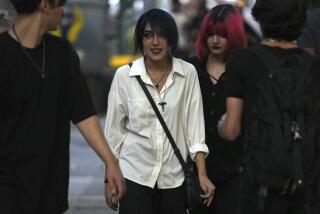Saudi Arabia activists warned that ban on protests will be enforced
- Share via
Reporting from Riyadh, Saudi Arabia — Saudi Arabia warned its few but increasingly emboldened political activists Saturday that it would enforce the law banning public demonstrations, providing fresh evidence of the government’s growing nervousness over political unrest among its neighbors and calls for change at home.
Saudi Arabia has remained relatively calm as political upheaval has swept the Middle East and North Africa over the last two months. But discontent is lapping at its borders, most notably in Bahrain and Yemen, stoking concerns that widespread calls for change could occur in the kingdom, a key U.S. ally in the region.
The threat to enforce the demonstration ban comes after members of the country’s Shiite Muslim minority staged small protests Friday in the east, calling largely for the release of political prisoners, according to press reports. The east is home of much of the kingdom’s oil wealth.
They were the latest in a series of demonstrations over the last few weeks decrying religious and employment discrimination in the Sunni Muslim-led country. The state denies any such bias.
At the same time, groups of intellectuals, liberals and Islamists around the country have signed various petitions asking King Abdullah and the ruling family to implement reforms, including ending religious and gender discrimination and moving toward a constitutional monarchy.
Several thousand people have also joined Facebook groups calling for a “day of rage” in the kingdom, with the earliest protest scheduled for Friday.
In a statement to the Saudi Press Agency, the Interior Ministry said that demonstrations are prohibited “because these contradict the principles of Islamic law (Sharia) and the values and norms of the Saudi society; they further lead to public disorder, harm to public and private interests, breach of the rights of others, and to wreaking havoc that result in bloodshed.”
Mohammed Qahtani, co-founder and president of the Saudi Civil and Political Rights Assn., said the clampdown could backfire.
“All channels of peaceful expression are closed,” Qahtani said. “This will only serve to increase the frustration in the people.”
Hints of the government’s tougher line against public criticism could be seen in the last week in the eastern towns of Qatif, Awwamiya and Hofuf. Police presence was heavy at Friday’s protests, said journalists covering the events, and at least three Western reporters were detained for several hours afterward.
A week ago, the Shiite cleric Sheik Tawfiq Amer was arrested after giving a sermon in Hofuf calling for fundamental reforms, including adopting a constitutional monarchy. Amnesty International says the cleric is being held incommunicado and may be at “risk of torture or other ill-treatment.”
More to Read
Sign up for Essential California
The most important California stories and recommendations in your inbox every morning.
You may occasionally receive promotional content from the Los Angeles Times.











